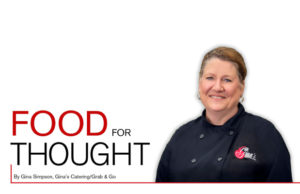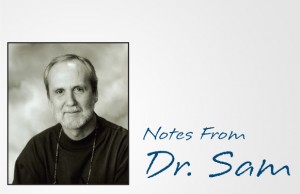Raising Breast Cancer Awareness

The abnormal cells in her breast measured only about one-eighth of an inch thick, roughly the size of a standard pearl bead used in jewelry. This was not large enough for her to be able to feel anything unusual, so it could have gone undetected. Donna Holloway was always diligent about getting her annual mammogram done, though, and that made all the difference.
During a routine mammogram at Saline Memorial Hospital in 2017, radiologists detected an abnormality, and Holloway was subsequently diagnosed with ductal carcinoma in situ (DCIS), an early form of breast cancer.
DCIS is a non-invasive or pre-invasive cancer, which means that cells that line the milk ducts in the breast have changed to cancer cells, but they have not spread through the walls of the ducts into the nearby breast tissue. DCIS can sometimes become an invasive cancer that spreads, though, so nearly everyone diagnosed with it gets treatment.
For Holloway, that treatment meant undergoing a lumpectomy and 21 radiation treatments. Now, she has been cancer free for six years, and she is incredibly grateful that the mammogram helped detect the cancer in its earliest form.
“I cannot stress enough the importance of getting yearly mammograms, even if you have no signs or no family history,” Holloway said.
Dr. Ralynn Brann, OB-GYN at Saline Women’s Clinic, confirmed that while having a family history of breast cancer can be a risk factor, only about 5–10% of breast cancers come from an inherited abnormality. Most result from abnormalities that attend general aging and wear and tear on the body, which is why annual mammograms are recommended for women beginning at age 40.
According to the American Cancer Society, breast cancer death rates have declined by 42% since 1989. That means 431,800 lives have been saved. The Society credits earlier detection through screening, as well as increased breast cancer awareness and improved treatment.
“Early detection of breast cancer is key to successful treatment and recovery,” Brann said. “So, if you are over the age of 40, or have a family history of breast cancer, and have never had a mammogram, call today to schedule your baseline scan. And, once you start, don’t stop. Perform monthly self-exams, and no matter how busy life gets, make time for your annual mammogram. It could save your life.”
To raise awareness about breast cancer and the need for mammography, Saline Memorial Hospital is hosting the Bosom Buddies Bash event from 2 p.m. to 6 p.m. on Tuesday, Oct. 24.
Those who attend the event will get free pampering, like facials and hand treatments, and can enjoy complimentary light refreshments from Daylight Nutrition, Farm Fresh Arkansas, and Cookies and Creations. The hospital’s breast imaging team will be doing mammograms with extended hours, and the scheduling team will be on hand to schedule mammograms for those who need them.
Attendees can also learn more about breast cancer and women’s health from local healthcare professionals, like Dr. Lin Chen of Genesis Blood and Cancer Institute, as well as Dr. Ashley Aughenbaugh, Wendy Bennett, APRN, Dr. Christina Green, Maggie Hicks, APRN, Dr. Angela Myles, and Dr. James Robb from Saline Women’s Clinic.
“The goal is to create a relaxed, comfortable environment to learn more about women’s health and to get people connected with the care they need,” CEO Michael Stewart said. “Women of all ages are invited and are encouraged to bring along a friend as well.”
Attendees will also have opportunities to win prizes, to support the American Cancer Society, and to judge the hospital’s bra decorating contest, which also benefits the American Cancer Society.
Anyone interested in attending the event and/or scheduling a mammogram should contact Kelly Wade at 501.776.6033 or kwade2@r1cm.com.
“At Saline Health System, we are taking a stand against breast cancer,” Stewart said. “We want all of the women in our communities—our mothers, daughters, sisters, aunts, grandmothers and friends—to know their risk, to recognize the signs and symptoms, and to understand the importance of self-checks and early detection. “
Saline Health System, a part of Lifepoint Health, is made up of Saline Memorial Hospital, a 177-bed acute care facility, and Saline Clinics, a network of primary care and specialty care clinics. The hospital is accredited through The Joint Commission for meeting quality and safety standards, the American College of Cardiology as a Chest Pain Center with Primary PCI, the MBSAQUIP as a bariatric surgery center, Optum in the Bariatric Centers of Excellence network, CARF as a rehabilitation center and the AASM as a sleep center. For more information about Saline Memorial Hospital, please call 501.776.6000 or visit SalineMemorial.org. For more information about Lifepoint Health, visit LifepointHealth.net.










0 comments